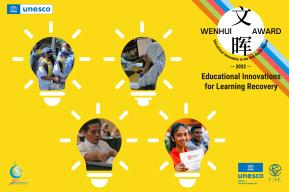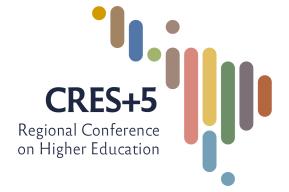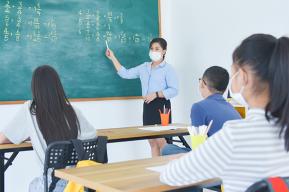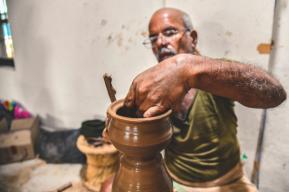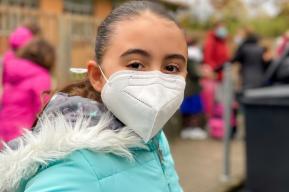News
We stand with her: A call to action on girls’ online learning and digital skills

Global leaders from across the public, private and philanthropic sectors have signed a joint letter committing to girls’ education and in particular girls’ digital access, skills and participation in online learning.
The letter calls on the international community to accelerate action to ensure girls have equal access to the technology and digital skills training they need to learn, and to protect and prioritise domestic and international financing for girls’ education amid COVID-19.
“Despite the best efforts to introduce remote learning during this pandemic, 43% (706 million) of the world’s learners lack internet access and in sub-Saharan Africa 82% of learners lack internet access”, said Stefania Giannini, Assistant Director-General at UNESCO. “In poorer contexts, many girls and young women lack access to the technology and digital skills that are now so essential to learning.”
This call to action comes in response to growing concerns that amid COVID-19, 11 million girls may not return to school and follows the recent Building the Bandwidth Summit convened by the Varkey Foundation, UNESCO, and CJ Cultural Foundation. Watch the highlights of the Summit.
The letter states:
Among the many tragedies the COVID-19 pandemic has brought upon the world is its threat to reverse decades of hard-won progress on girls’ education. Before COVID-19, global efforts to get more girls into the classroom had seen 180 million more girls enrol in primary and secondary education since 1995. But now, UNESCO estimates that 11 million girls may not return to school after the pandemic.
The overnight shift to online learning has put girls at a disadvantage in many contexts, due to disparities in both their access to technology and the digital skills needed to use it. More men than women are using the internet in all regions of the world, except for the Americas. In low- and middle-income countries, according to GSMA, women are 7% less likely than men to own a mobile phone and 15% less likely to use mobile internet. Similarly, in many countries, the gender digital skills gap is apparent, from simpler tasks such as using apps on a mobile phone, to advanced skills like coding.
What’s more, the shift to online learning has raised concerns about girls’ safety on the internet. According to the World Wide Web Foundation, 52% of young women and girls around the world report having experienced online abuse, including threatening messages, sexual harassment and the sharing of private images without consent. As a result, many parents and caregivers are limiting girls’ time online.
These inequalities and risks to girls’ education are likely to be compounded by shrinking domestic and international financing budgets in the wake of the pandemic’s economic devastation. UNESCO and the World Bank estimate that external aid for education may fall by $2 billion from 2020 levels.
That is why, following the Building the Bandwidth Summit convened by the Varkey Foundation, UNESCO, and CJ Cultural Foundation, we commit to expanding girls’ access to online learning and digital skills, and call for action by the international community to:
- Protect and prioritise domestic and international financing for girls’ education post-COVID-19 to safeguard progress, particularly in the poorest countries
- Ensure girls have equal access to the technology and resources they need to learn effectively, and ensure safe, empowering spaces for learning – including online
- Build digital skills through gender bias-free curricula and teacher capacity to engage all learners equally, addressing unconscious bias in teaching practices
- Develop and implement action plans that support girls’ pursuit of science, technology, engineering and mathematics (STEM) subjects and careers
- Catalyse cooperation between governments, the private sector, civil society, development partners, academia, families and girls to close the gender digital divide.
Discover the signatories to the joint letter.
More information
- UNESCO’s Her education, our future initiative
- Global Education Coalition’s Gender Flagship
- UNESCO’s work on education and gender equality


